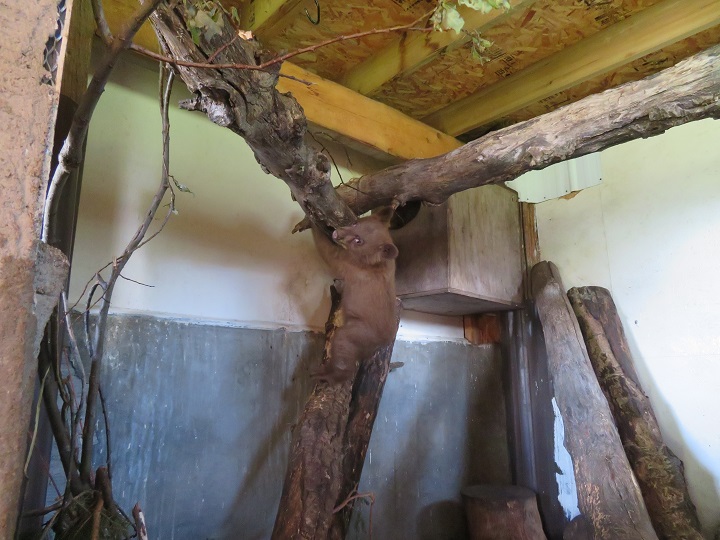An animal rehabilitation facility in southern Alberta is taking care of a black bear cub after she was hit by a car near Grande Cache.

The Cochrane Ecological Institute (CEI) said they received Maskwa — which means “Bear” in Cree — from a woman named Brandy Gienger. Gienger was driving near her home when she saw the bear be hit by a car. The cub’s mother and two siblings were nearby when Gienger rescued the cub and took her directly to the CEI.
WATCH BELOW: Take a look at Maskwa, an orphaned black bear cub taken in by the Cochrane Ecological Institute. She is the second black bear cub allowed to be rehabilitated in the province since the ban was lifted on April 18, 2018.

“Initially it was believed she may have also been poisoned as her equilibrium and balance was severely altered, she was unable to hold her head up when she first arrived,” the institute said.

Get daily National news
“However, once in care she quickly responded positively and within a week was doing much better. She likely suffered a severe concussion upon her injury.”
Maskwa was initially kept in a smaller enclosure but as she improved she was moved to an enclosure that has logs and things to play on, which the CEI said will help her improve her strength and balance.
The institute said this is the second black bear cub they’ve received since the province lifted a ban on rehabilitating bears in Alberta on April 18.
Charlie — the first bear rescued in May after he was found abandoned near a campsite — is doing well, the CEI said.
“He is long off drinking milk from a bottle and thus has been relocated to an outdoor pen full of spruce trees which he loves to climb,” the institute said.
WATCH BELOW: The Cochrane Ecological Institute provided this footage in May of a bear cub rescued in southern Alberta they’ve named Charlie Russell

The CEI said Maskwa and Charlie will be introduced soon and their outdoor enclosure will be opened up to a larger space with more trees, a pond to swim in and “many enrichment opportunities to learn and grow.”
The bills to care for both bear cubs have been high, the CEI said. Donations to care for and eventually release the cubs can be made through GoFundMe or the CEI’s website.










Comments
Want to discuss? Please read our Commenting Policy first.